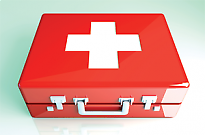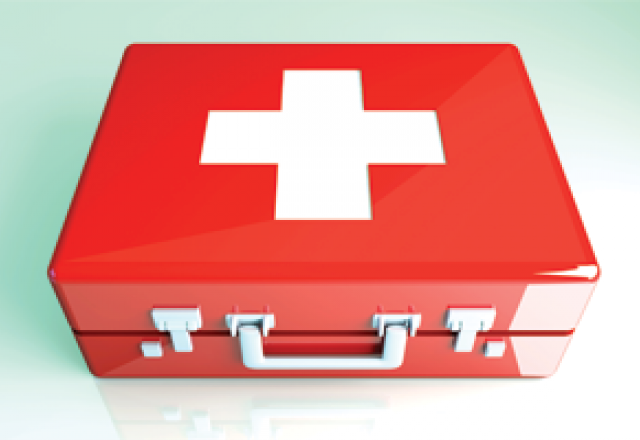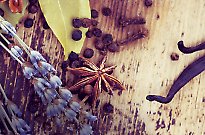
Natural solutions to First Aid

Even the most well-planned holiday can go wrong if you unexpectedly get sick or injured.
Tamie Wexler gets you prepared with a first aid kit full of nature’s best remedies
As well as natural healing agents, it’s important to pack first aid essentials including scissors, safety pins, gloves, a first aid blanket, an instant ice pack, a thermometer, tweezers, alcohol, hand sanitiser, different sized adhesive bandage strips, sterile gauze pads, bandage material and adhesive bandage tape.
Sunburn
Most of us have felt the ramifications of indulging in too much sun. If you are planning a trip where the sun is known to be strong, then pack sunscreen and be mindful of staying in the shade. Slip, slop, slap isn’t fail-proof though, so don’t forget to include aloe vera in your first aid kit, too. “Aloe vera soothes the inflammation of sunburn and even common kitchen scalds and burns,” says naturopath Emma Mansfield. Calendula cream can also be applied to sunburn. “It increases the speed of tissue repair for open wounds as well as for tissue injuries like sunburn,” she says. The cream has a soothing effect on the surrounding tissue and it can relieve itchiness and pain.
Motion Sickness
Motion sickness is an unfortunate fact of life for some, so it is beneficial to include ginger capsules, crystallised ginger or ginger-infused tea bags in your first aid kit. Ginger is a great remedy for motion sickness and also digestive cramping and tummy upsets. “Ginger has been proven to relieve motion sickness better than conventional drug treatments,” Mansfield says.
Diarrhoea
When travelling to foreign places, many people suffer from diarrhoea and the resultant loss of electrolytes. Electrolytes are needed in our body to regulate our nerve and muscle function. “Emergen-C is a good electrolyte to carry in your first aid kit, but coconut water is the best natural solution,” Mansfield says. It’s also beneficial to take probiotic capsules while you are travelling.
Blocked Sinuses
Even in the summertime we are susceptible to colds and flus. “Eucalyptus oil is excellent for treating colds, coughs, flus and sinus infections,” Mansfield says. To reduce congestion you can add a few drops to a steam inhalation. Alternatively, peppermint essential oil or peppermint tea can help to clear the sinuses.
Plant Rashes
Nature walks are a great way to relax and enjoy exercise in the outdoors over the holidays. If you are planning to spend time in the wilderness, then it’s probably a good idea to pack a remedy to relieve the pain and itching of plant rashes, should something like this occur. “Gumweed contains resins and tannins that help to relieve the pain and itching of a plant rash,” Mansfield says.
Fungal Infections
Tea tree oil is a natural disinfectant that can be used to clean the skin and on minor cuts. It also treats fungal infections of the skin, particularly athlete’s foot, which is commonly picked up in warm, damp environments like locker rooms, public showers and indoor swimming pools.
Sprains, Strains and Sore Muscles
Mansfield suggests including arnica gel or cream in your first aid kit. Arnica montana is a plant that has long been used medicinally. The gel or cream is excellent for sore muscles, sprains, strains, swelling and bruises, she says. Arnica also comes in tablets or pills, which can be taken orally for a more profound effect. For muscle aches and pains, we love Amazing Oils organically certified magnesium spray (right).
Skin Irritations
Witch hazel has anti-inflammatory properties, so it’s a great one to include in your first aid kit. “It’s useful for insect bites, blisters, swelling, hemorrhoids and skin irritations like sunburn, shaving rash and cuts,” Mansfield says.
Insect Repellent
If you are travelling to a tropical location, you should pack an insect repellant. “Herbal insect repellants work well as long as they are applied liberally and frequently,” Mansfield says. She also suggests an essential oil blend of rosemary, eucalyptus, peppermint, clove and thyme.
Photo credit: Thinkstock
Browse more health advice or join the debate on our Facebook page.


